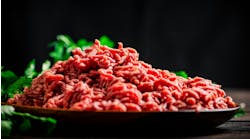Remember all the fuss about genetically engineered foods back in the previous decade? A new study confirms what you already know: that mandatory bioengineered (BE) food labeling did not reduce demand for products that contain genetically modified organisms (GMOs).
The study, “GMO and Non-GMO Labeling Effects: Evidence from a Quasi-Natural Experiment,” used actual retail-level consumer purchase data in Vermont and found no loss in sales The report was authored by researchers from Cornell University, the University of Massachusetts and the Imperial College Business School in London.
“For context, the Pew Research Center found in 2018 that 49% of U.S. adults believe that foods which contain GMO ingredients are less healthy than foods without them,” an announcement of the study says. “And 88 percent of consumers have a strong preference for including this information on the label.”
Vermont was the only state that passed and implemented a mandatory GMO food labeling law ahead of the federal government’s national rule, which was announced in 2016 and implemented last year. Retail sales data shows that state’s labeling requirement did not affect demand for GMO products.
“The most notable finding of our research was that the legislative activity itself heightened consumer awareness about GMO topics and increased adoption of products with voluntary non-GMO labels, even without the implementation of mandates,” said the researchers. “We also found that the actual implementation of the mandatory GMO labeling in Vermont had no additional direct effect on demand for GMO or non-GMO products.”
And they concluded last year’s enactment of the national GMO/BE labeling law is unlikely to significantly affect consumer behavior.


